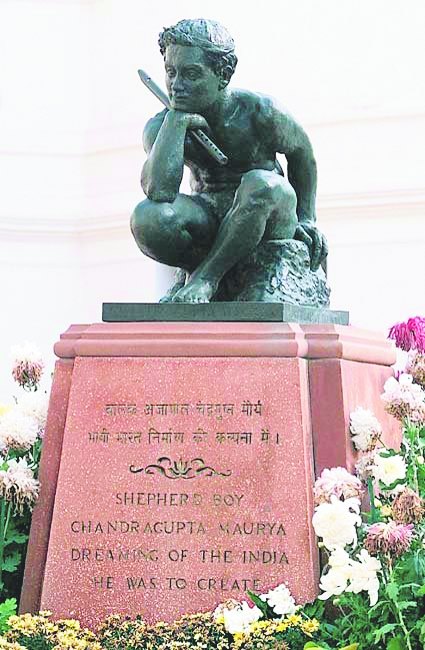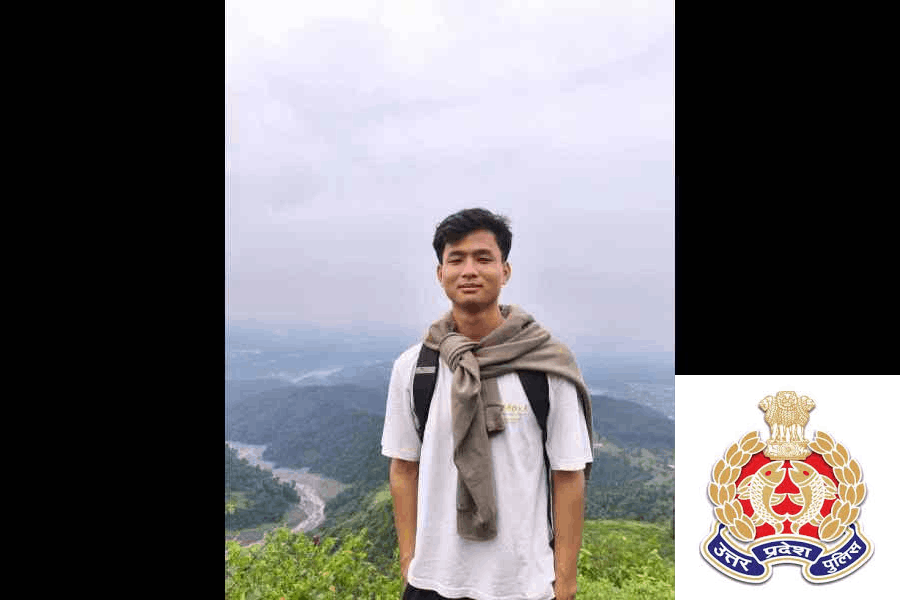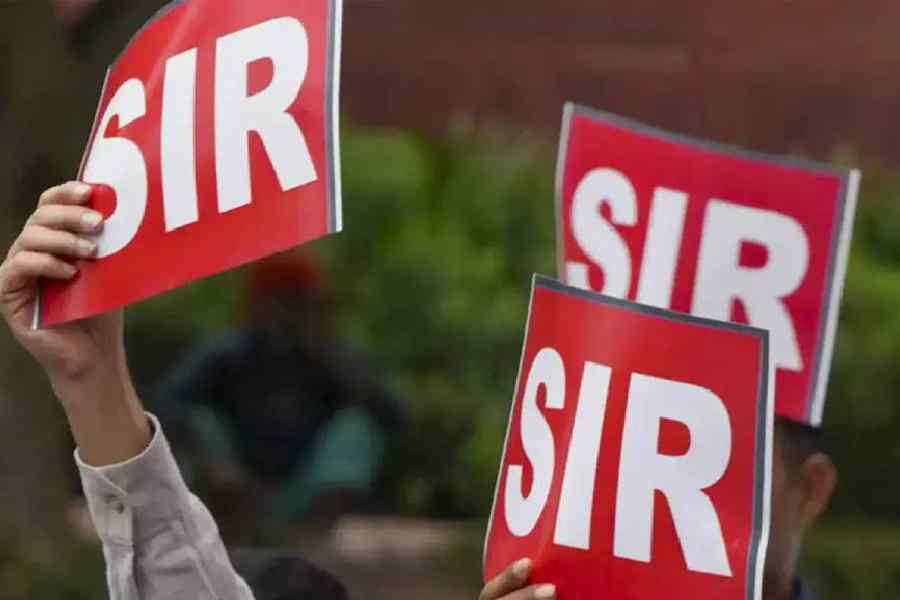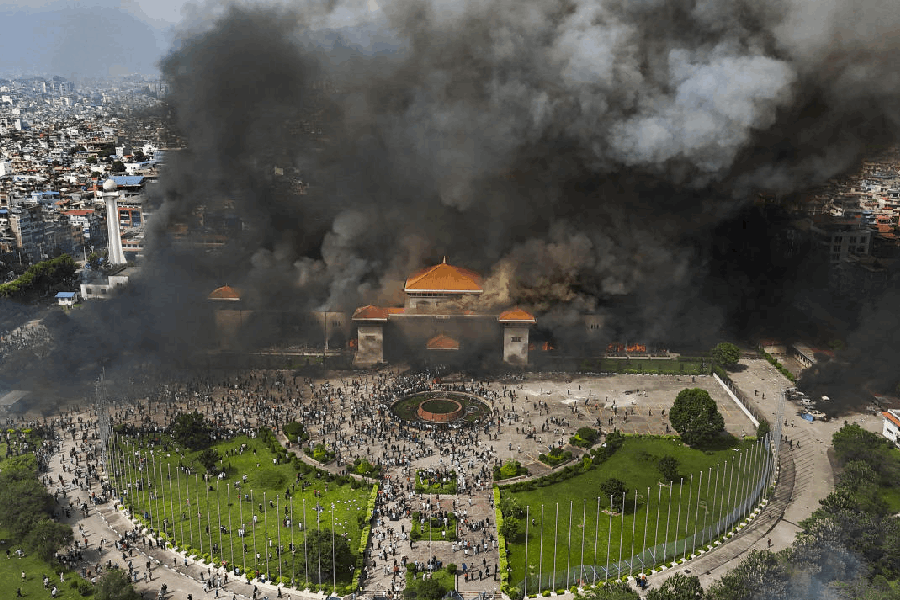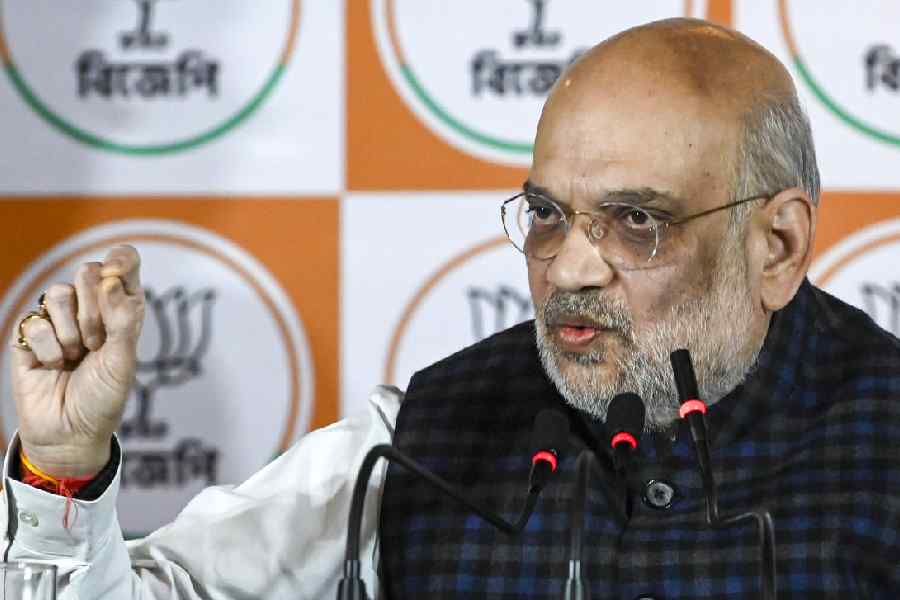
The symbolic bronze statue in Parliament of Chandragupta Maurya dreaming of the India he was to create
Patna, Dec. 9: Historians have questioned the BJP's efforts to project Chandragupta Maurya - the great emperor who founded the ancient dynasty bearing his name - as a member of the Kushwaha community, the second largest OBC grouping in the state which the party is trying to win over in the run-up to next year's Assembly elections.
A little known outfit, the All India Rashtrawadi Kushwaha Parishad, today organised a function in the city to mark the Rajyarohan Diwas (coronation day) of Chandragupta Maurya. The event was graced by senior BJP leaders Sushil Kumar Modi, Nand Kishore Yadav, Mangal Pandey and Suraj Nandan Kushwaha, all of who sought to project the emperor as 'a great Kushwaha leader'.
However, experts The Telegraph spoke to said there was no historical evidence to establish that Chandragupta Maurya, whose empire, built with help from his mentor and adviser Chanakya, extended from Bengal to the edge of what is now Iran, Tajikistan and Kyrgystan, covering modern day Pakistan, Afghanistan and the entire Gangetic plains, was from the Kushwaha community. Chandragupta was born in 340 BC in what is today Patna and is believed to have ruled from around 320 BC to 298 BC, when he renounced his throne in favour of his son Bindusara.
Historians expressed surprise at the move to assign the Kushwaha caste to Chandragupta, of whose ancestry and childhood very little is known. 'Not that I know of,' noted historian Romila Thapar told The Telegraph when asked if there was any specific reference to the caste and date of coronation of Chandragupta Maurya. 'There are contradictions even on the year of his coronation,' she added.
Historians in Patna said much the same. 'There is no evidence to suggest the caste to which Chandragupta Maurya belonged. There is only a mention that Chandragupta Maurya was born to a low caste,' said S.S. Singh, a senior professor of ancient history and archaeology at Patna University. Ancient Buddhist tradition, on the other hand, suggests a noble lineage for Chandragupta, describing him as a scion of the Kshatriya clan of the Morias.
Suraj Nandan Kushwaha, the man behind today's function, asserted Chandragupta was a Kushwaha, the community which claims to be the descendants of the mythological character Kusha, the son of Lord Rama. Kushwaha, who teaches history at Guru Govind Singh College in Patna City, however, failed to substantiate his claim with any historical evidence.
With history taking a backseat, politics has begun dominating such shows. The BJP is trying to woo the Kushwahas as the community is the second largest backward caste grouping in Bihar (the largest being the Yadavs), constituting around seven to eight per cent of the population.
Though the BJP does not boast of any big names from the Kushwaha community, it has an alliance with Upendra Kushwaha's Rashtriya Lok Samata Party.
The BJP leaders used the arrows in its quiver to attack Nitish Kumar and Jitan Ram Manjhi's government, equating them with Dhana Nanda, the last ruler of the Nanda dynasty who was defeated by Chandragupta Maurya.
'The reign of Dhana Nanda was marked by anarchy and bad governance. Chandragupta, by defeating Dhana Nanda, established the Mauryan empire, which was a golden period in Indian history. Similarly, with the help of the Kushwahas and all other communities, the BJP will ensure good governance to the people by removing Manjhi and Nitish from Bihar,' said Sushil Modi.
Sources said the party would launch a statewide campaign to create awareness among the Kushwaha voters about their ancestors, who, according to the BJP, are Asoka and Chandragupta Maurya.
National icons are often used by political parties to woo castes. In the past, cutouts of Mahatma Gandhi have been used in rallies for the Baniya caste, while Sardar Patel is projected as a Kurmi leader. Ramdhari Singh Dinkar, acclaimed for his nationalistic poetry, is invoked to woo Bhumihars and the late chief minister Karpoori Thakur always comes in handy for political parties currying favour with EBCs.
Chandragupta Maurya and Asoka, two of India's greatest sons, are now poised to join the list, even at the expense of history.

